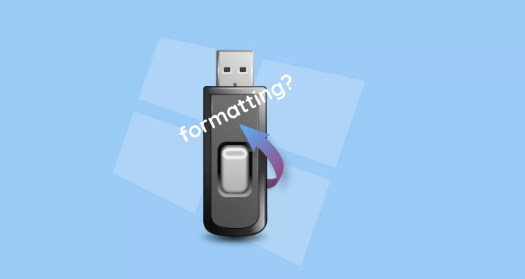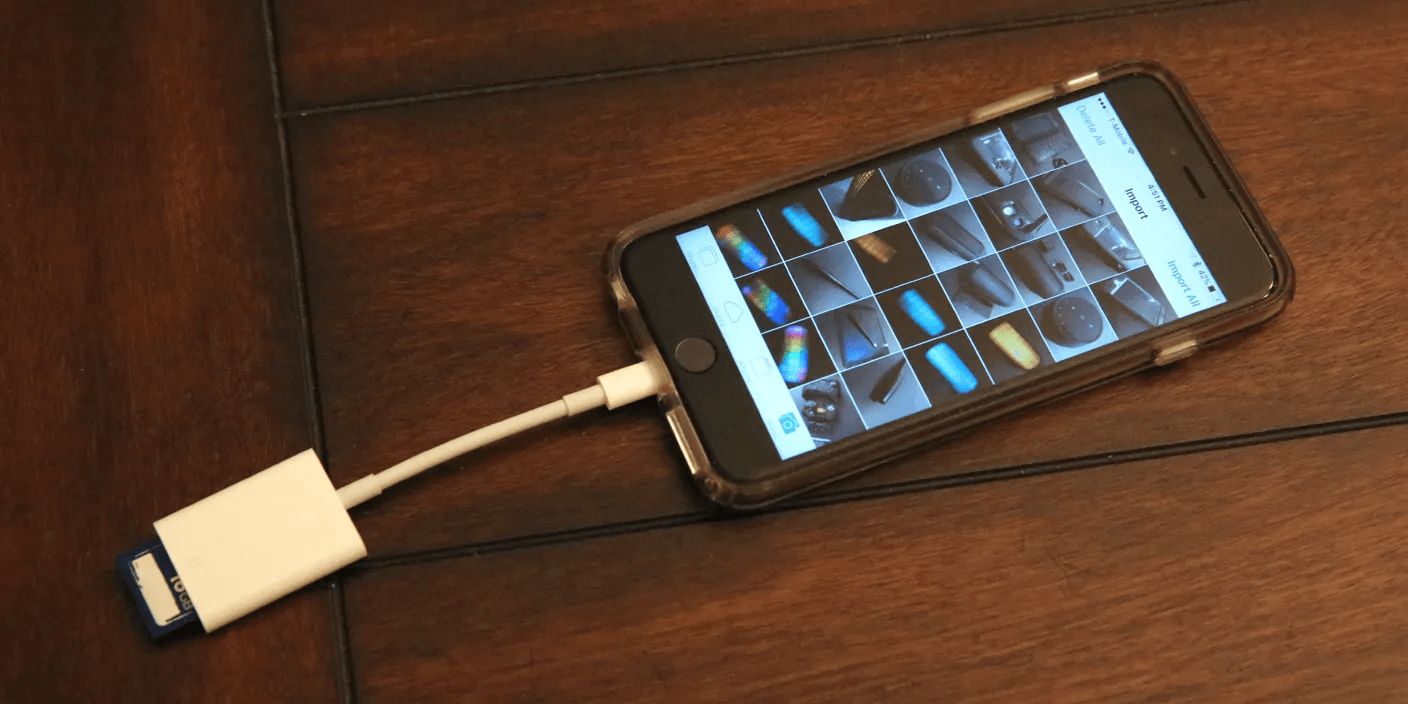An external hard drive is an excellent tool for increasing your storage capacity. While Seagate is a well-known and widely used external hard drive brand. By renaming your Seagate External Hard Drive, you can easily distinguish it from other devices, better organize your files, and improve work efficiency. In this guide, we will describe how to rename your Seagate external hard drive on your Mac. Go on reading to access the proven solutions if you just searching for answers to this question.

How to Rename Seagate External Hard Drive on Mac
To rename your Seagate external hard drive on the macOS system, you can follow these steps:
Step 1. Click the Finder icon to launch a Finder window from the Dock. Then click Go in the menu bar.
Step 2. In the Go menu, click Computer.
Step 3. Right-click the target external hard drive to rename it.
Step 4. Click Get Info and enter the new name of the hard drive.

It is an easy task to rename your Seagate external hard drive on a Mac. However, sometimes things may not be all the best. From time to time, you may find that you fail to rename the external hard drive on your Mac. What caused this problem and how to fix it? Check the solutions below if you can’t rename the Seagate external hard drive.
Reasons You Can’t Rename Seagate External Hard Drive
There are a variety of reasons that may cause you to fail to rename the Seagate external hard drive on your Mac. Here, we list several common causes:
- Your Seagate external hard drive is read-only. Since macOS—even the most recent version of Ventura—does not support writing to NTFS drives, the external hard drive will be read-only if it is formatted as NTFS.
- You don’t log in to your Mac as an administrator. On your Mac, files, folders, and drives may be password-protected so that only the administrator may access them. As a result, you might not be able to rename the drives on a Mac if you are not utilizing an admin account.
- Rename the external hard drive incorrectly. There may be restrictions on the length or format of filenames in some file systems. The error “the name xx can’t be used” appears if the entered name is not supported.
- Corruption on the external hard drive. If your Seagate external hard drive is corrupted, you can’t rename it as well. To correctly rename an external hard drive that has become corrupted, you may need to fix the external hard drive that is exhibiting odd behavior on your Mac.
- File sharing is turned on. Sometimes, there will be an obscure bug to prevent the external hard drive renaming process, especially in older versions of Mac, when the File Sharing is turned on.
These factors may prevent you from renaming the Seagate external hard drive. If you enter the situations mentioned above, how to fix it and successfully rename the drive? Check solutions in the following section.
How to Fix If You Can’t Rename Seagate External Hard Drive
Based on different situations, there are different solutions to fix the “Seagate external hard drive can’t be renamed” issue. See common proven methods below.
Method 1. Verify the external hard drive file system
You can’t just rename the external hard drive on a Mac if the drive is formatted with a file system that isn’t supported by macOS. You can use Disk Utility or Get Info to inspect it. Generally, APFS, Mac OS Extended, FAT32, and exFAT are compatible with macOS. However, NTFS is read-only on Mac. If the file system is NTFS, you can immediately format the external hard drive on a Mac to remove the incompatibility if it is empty or contains no crucial data. To format the external hard drive on Mac, follow these steps:
Step 1. Verify that the external hard drive is mounted and connected.
Step 2. From the menu bar of the Finder, choose Go > Utilities. Double-click the Disk Utility folder. The left column shows all linked disk images, partitions, and storage devices.
Step 3. Pick Seagate Drive. Select the Erase option. Select a format using the drop-down menu and give the volume a name.
Step 4. In the pop-up window, confirm your selection by clicking Erase.

Then the Seagate external hard drive is formatted, and you can successfully rename it. However, before you format the drive, make sure you have backed up crucial data in the hard drive to avoid data loss.
Method 2. Change the drive permission
You might not be able to rename an external hard disk on a Mac or do other operations if you are not allowed to write data to external hard drives. This could be because your account privileges are set to read-only. On a Mac, changing permissions can resolve this problem. To do so, follow these steps:
Step 1. Select Get Info after clicking the drive in the Finder’s sidebar or on the Desktop.
Step 2. Change your account’s privilege to Read & Write under Sharing & Permissions. If you are unable to modify it, try logging in as an administrator or contacting an admin to modify the permissions.
Step 3. If the option to “Ignore ownership” is available, select it for this volume.

Method 3. Give the drive the correct name
The error message “The name xx can’t be used” appears if you rename the external hard drive improperly. Consider choosing a name with fewer characters or without any punctuation; you should adhere to the file format’s naming rules. Try to give the Seagate drive a new appropriate name if you are in this situation.
Method 4. Repair corrupted external hard drive
If you are unable to rename the external hard drive on your Mac, disk problems may be the cause. If so, you can inspect and fix drives by using Disk Utility’s First Aid feature. To repair the external hard drive on Mac, follow these steps:
Step 1. Open the Disk Utility application on your Mac and select View > Show All Devices.
Step 2. Select the corrupted drive you want to repair. After choosing a volume in the sidebar, click the First Aid option.
Step 3. Hit the Run button to check and repair errors. Any unforeseen error on your external hard disk can be fixed with this.

Step 4. After the disk issue has been fixed, try to rename the drive in Finder again.
These are all the recommended methods to fix the “Seagate external hard drive can’t be renamed” issue. You can follow the steps above, to try to successfully rename your Seagate external hard drive.
Other FAQs on Seagate External Hard Drive
How to Use Seagate External Hard Drive
To activate the Seagate external hard drive the first time, select it from the Mac’s menu bar. From the pull-down menu, pick the NAS. Select Wake up. If it is not compatible with your Mac system, try to format it.
How do I connect my Seagate hard drive to my MacBook Air?
Make use of the included cable to connect the hard disk to the Mac. Simply insert the USB cable into an available port on your Mac, as most hard drives connect via USB. Each side of the Mac usually has a minimum of one USB port.
What is the best format option for an external hard drive Mac?
Use Mac OS Extended (Journaled) or APFS when formatting a storage drive for optimal performance. If you are using macOS Mojave or later, the APFS format is a better choice. Make sure you make a backup of your data if you wish to save it because any data on a formatted storage media will be lost. Suppose you accidentally lost data in your external hard drive, you can use data recovery software, like ONERECOVERY to perform external hard drive recovery.
Is Seagate Hard Drive Good?
Seagate is one of the most popular hard drive brands in the industry. It is a good brand with various trustworthy products. Apart from Seagate, other external hard drive brands, like Toshiba, and Western Digital, are also great options.
The Bottom Line
In this informative guide, we explained how to rename the Seagate external hard drive on a Mac. By doing so, you can effortlessly identify it among other storage devices to better manage the drives on your Mac computer. The step-by-step tutorial is provided for you to rename the hard drive. In addition, we have talked about several situations in which you failed to rename the drive and provided related solutions.
The Seagate external hard drive is a good option for you to extend the storage space. However, you also need to pay attention to using it properly to avoid critical data loss. When you find the external hard drive data is lost caused by corruption, accidental deletion, or system formatting, ask professional data recovery software, like ONERECOVERY for help.
I’m thrilled to be part of the OneRecovery team as a writer. I’m passionate about simplifying the complex world of data recovery and making it easy for everyone to understand. My focus? Well, I love diving into tutorials on hard drive recovery, crash computer data retrieval, photo repair, and many more. But that’s not all—I’m all about exploring the creative side too, so expect plenty of engaging and imaginative posts on various aspects of data recovery software. Join me on this journey as I share insights, tips, and tricks that make data recovery a breeze!







